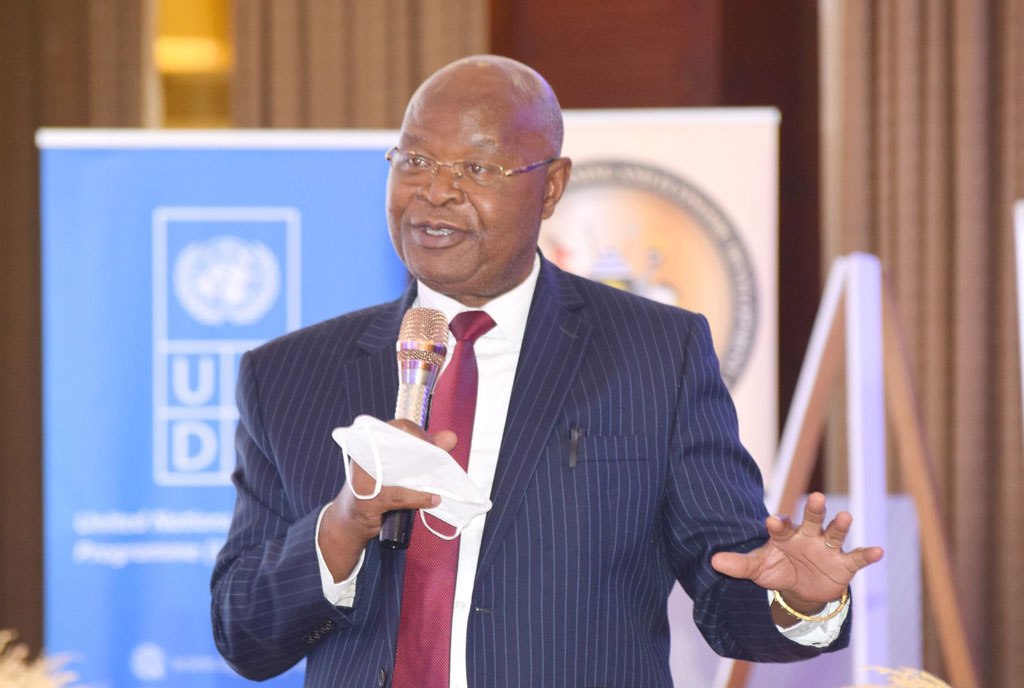Rating top merged, disbanded agencies
Kampala.
After Cabinet decided to merge or disband some of the government agencies, we look at the achievements and failures of the most affected agencies.
Uganda National Roads Authority
Achievements
When the authority was created 10 years ago, there was a lot of outcry about the state of major roads. Demonstrations were held and roads blocked.
But when President Museveni injected Shs1 trillion in infrastructure projects, UNRA fast-tracked the construction and maintenance of government roads, especially highways, including the Kampala-Masaka-Mbarara road and Kawempe-Kafu-Gulu road.
In 2008, UNRA took over 8,000 kilometres of district roads and urban authorities and rehabilitated them.
It has been able to get rid of corruption at weighbridges. In 2009, the then Works and Transport minister, Mr John Nasasira, suspended weighbridge services due to corruption and ordered an investigation.
A report from Prof Justin Epelu-Opio revealed massive corruption and describe it as “everything happened at the weighbridges except weighing.”
CCTV cameras linked to UNRA headquarters were established at weighbridges and corruption declined.
Failures
UNRA staff have been accused of corruption, especially in road construction. Mukono-Katosi road construction led to the conviction of Joe Ssemugoona, a finance officer at UNRA, and his assistant Wilberforce Ssenjako, for theft and neglect of duty.
Despite UNRA’s autonomy, it has been unable to avoid undue influence from the line minister or the President. Mr Museveni ordered UNRA to revise its decision to block Dott Services from reconstructing the Tirinyi-Mbale road.
Uganda Registration Service Bureau (URSB)
Achievements
The URSB has reduced duration of registering a company from a month to four days.
The collection of non-tax revenue has increased from Shs5.8b in 2011 to Shs32.5b in 2017.
Registration of companies which was often done only in Kampala, has been decentralised to several regions.
Directorate of Citizenship and Immigration Control
The directorate has been under the Ministry of Internal Affairs. In the approved restructuring, it will be under the Ministry of Justice as a department.
Achievements
Time taken for issuance of general passports has reduced from two months to a month and two days for express passports.
Immigration has constructed its own training school in Nakasongola District.
The directorate collects Shs52b annually from services and remits to government.
Failures
It has suffered bad reputation as many suspected black criminals arrested in China and South Africa are found with Ugandan passports.
It has also suffered accusations of corruption and mismanagement, with President Museveni suspending two top managers in March over allegations of mismanagement.
Uganda Aids Commission
Achievements
The commission has helped to cut HIV prevalence rate from 15 per cent in the 1990s to the current six per cent.
Awareness messages on HIV/AIDS have penetrated grassroots in the country.
It has been able to lobby for funds to fight the HIV/AIDS scourge.
Failures
In the last three years, HIV prevalence rate has remained stagnant.
The commission has been accused of failing to absorb funds by providing strong proposals.
Uganda Investment Authority
Achievements
The authority has been able to attract more investors from Asia.
Failures
Land in investment parks was parceled out to individuals other than companies.
Leadership fights have affected the image of the authority.
National Identification And Registration Authority
Achievements
Issuance of national identification cards to Ugandans above 16 years.
Establishing a databank for Ugandans which is used by both government and private entities to fight crime and wastage of resources.
Failure
Failed to provide identity cards on time, often taking up to four months to process one.
Experts weigh in
Ramathan Ggoobi, an economist, MUBS lecturer:
“[The] government has finally done something Ugandans have been craving [for]; rationalisation of government agencies is spot-on. We have been asking for a lean government to cut the cost of running it, which had forced [government] to [excessively] tax [the population]”.
Dr Gerald Karyeija, the dean of the school of management, Uganda Management Institute:
“I generally consider it as a good move to reconfigure the structures of the government. It (re-organisation) should move to other administrative areas such as the cabinet and local governments. The intention (of re-organisation) should not be to save money, but improve service delivery.”
INSTITUTIONAL HEADS SPEAK OUT ON MERGING
“Our organisation is a specialised one. You will never find a blood donor recruiter or blood transfusion in any other entity. If they do it (merge), blood donation is bound to fail because I do not think the Health ministry can do that. Tell them it will not work.” Dr Dorothy Kyeyune, UBTS executive director
“The objective of merging agencies is to streamline public administration and supervision and reduce public expenditure. In the meantime, colleagues, I continue to urge you to remain calm and committed to your assignments and work as hard as you have been doing.” UNRA executive director Allen Kagina in an email to staff
“I am still consulting the relevant authorities to find out what happened and how to proceed with these changes. I have not got any official communication from any government ministry, so I cannot comment further. I cannot act on speculation.” Mr Noah Luwalira, Atomic Energy Council executive director
“For you to dissolve NFA, you need to create another policy or law that takes it back to the ministry. It is a process which will not take place anytime today or tomorrow. NFA is reverting to the parent ministry. Our 300 employees should not be worried,” Ms Aisha Alibhai, NFA spokesperson
“What you have to know is that we were not consulted. This institution plays a critical role in the tourism sector. The [merger] announcement has created some anxiety among the staff but as leaders we are telling them to continue working,” Mr Sam Mawanda, UWA executive director



